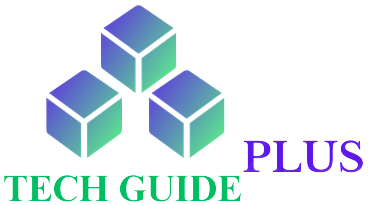Choosing a career is an intricate process with many layers to consider. It can be daunting for anyone, from new graduates to those seeking a career change later in life. Identifying what truly matters to you in a job and aligning that with available options is crucial for long-term satisfaction. Understanding personal values, interests, and desired lifestyle can dramatically influence the direction of your career path. This article delves into the essential steps to pinpoint a fitting career.
Understanding Personal Values and Interests: Key to Career Satisfaction
Before diving into job listings and sending out résumés, take some time to reflect. Consider what makes you tick—is it the opportunity to help others, or perhaps the pursuit of innovation and creativity? Assessing fundamental beliefs such as autonomy, security, balance, teamwork, and recognition can guide you toward careers that resonate with your core principles. This intrinsic alignment is often the bedrock of job fulfilment and career longevity.
Your interests also play a significant role. Do you enjoy working with technology, engaging with people, or spending time outdoors? Taking note of these preferences can help to narrow down career fields and job roles that will keep you engaged and motivated. Remember, interests can evolve, so consider current and potential future passions.
Aligning your career with your values and interests is crucial, but so is being realistic about where these can lead you. There may be a need to balance idealistic aspirations with practical economic and lifestyle considerations. For instance, a passion for fine wines may lead you to intensive sommelier training, bridging personal interest with professional expertise.
While self-analysis is a significant first step, you should also be open to experiencing different avenues. Volunteer, take up internships, or partake in community projects related to your fields of interest. Such activities can provide deeper insights into your strengths and preferences and enhance your resume.
The Role of Education and Training in Career Advancement
Education and training are often the cornerstones of career advancement. Pursuing relevant degrees, certifications, and continuous professional learning can set you apart in the job market. It’s important to consider how your educational choices dovetail with your career aspirations, whether you opt for a traditional university path or vocational and technical training.
With the proliferation of online learning, pursuing further education has become more accessible. Many reputable institutions offer online degrees that can accommodate your lifestyle. For instance, an online early childhood education degree may be the first step towards a rewarding educational career for those balancing work with personal commitments.
Continual upskilling should not be overlooked after landing a job. Engaging in professional development can keep you abreast of the latest industry practices and maintain your marketability. Commitment to expanding your skillset demonstrates initiative and can lead to career growth and higher earning potential.
Still, navigating the vast options for education and training can be challenging. Consider contacting academic advisors, attending career fairs, or seeking mentorship within your desired field to make informed decisions about your educational investments.
Seeking Professional Advice: Utilizing Career Counselors and Coaches
Professional advice is an invaluable resource in finding the ideal career. Career counsellors and coaches can offer personalized guidance, helping you see the bigger picture and perhaps discover the potential you haven’t recognized.
These professionals are adept at interpreting your skills, values, and interests and translating them into actionable career options. Through various assessment tools and deep-dive conversations, they can aid in mapping out a career strategy, including setting short-term and long-term goals.
Don’t underestimate the power of networking in seeking advice and expanding career opportunities. Connecting with individuals in your desired profession can offer real-world insights and possibly mentorship. Professional associations and networking events are great places to meet such individuals.
Remember that while professional advice is valuable, your career choice should ultimately be yours and yours alone. Use insights from experts as a lens through which to consider your options, not as a prescription for your professional life.
Overall, the path to selecting the best career involves a thorough understanding of oneself, industry trends, the impact of education and training, as well as professional input. By diligently researching and self-reflecting, you can find a rewarding and fulfilling professional path that stands the test of time. Meanwhile, stay adaptable, continuously learn, and never be afraid to ask for help along the way.

